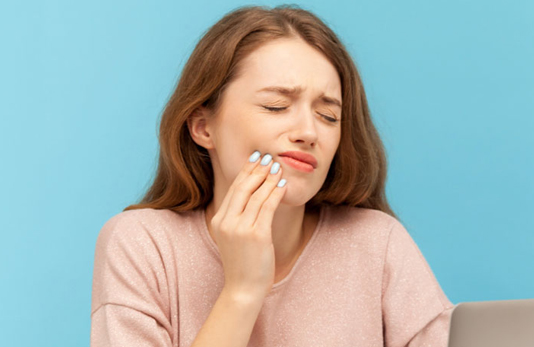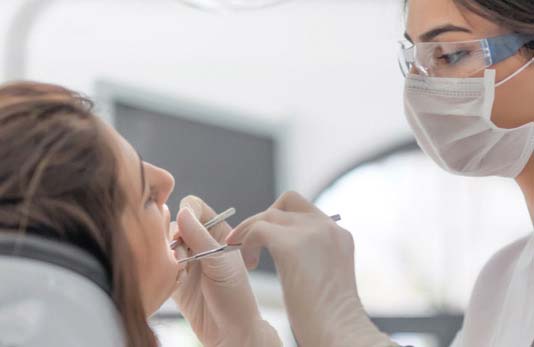How cancer affects your oral health

Taking care of your oral health can understandably take a back seat when you are fighting cancer. However, it’s important to work with your dentist before, during and after your cancer treatment to maintain your dental health.
I’m busy – do I really need to see the dentist?
It’s important to visit your dentist for a thorough exam at least two weeks before you begin chemotherapy. Seeing your dentist before you start chemo gives you time to treat any minor oral health issues (like a filling) without worrying about the side effects of radiation.
This allows your dentist to confirm for your oncologist that you don’t have any pre-existing conditions that would be impacted by chemo, like a tooth infection.
I’m on chemotherapy. What do I need to know?
While chemo is killing cancer cells, it is also lowering your neutrophil count. These helpful white blood cells fight infection and keep your mouth healthy. When your neutrophil count drops, you’re at increased risk of dental infections, such as cavities and gum disease.
While undergoing chemotherapy, be sure to observe any changes in your mouth and make sure you keep up regular brushing and flossing.
What foods should I eat to avoid hurting my teeth and gums?
Your mouth will be extra sensitive, but eating healthy is critical when you have cancer. Good options are mashed potatoes, scrambled eggs, cooked cereals (oatmeal) and yogurt. Chew slowly and take small bites. Swallow your food with a little liquid if it helps.
Avoid crunchy or spicy foods, like chips and salsa, or anything high in sugar, like candy or juice. Don’t use toothpicks, because you’re at higher risk of infection if you scrape or cut your gums or cheeks. Be sure to avoid tobacco and alcohol.

What are the side effects of chemo on my teeth and mouth?
Aside from being more prone to infections, you may also develop a kind of “domino effect” of dental issues:
- Dry mouth. Chemo reduces the amount of saliva in your mouth. Saliva helps neutralize acid, so less saliva means a greater chance of developing tooth decay.
- Sores. You may also develop sores on or under your tongue, on your gums, and on the soft lining of your mouth. Minimize the impact of these sores by keeping your mouth clean.
- Sense of taste. Your taste buds might also change, meaning they won’t recognize certain flavors the way they did prior to chemo. It’s possible a food that used to taste good might not be to your liking anymore, and something you weren’t too fond of previously suddenly tastes yummy.
Your oncologist and dentist will work together to help you manage the side effects and other problems that can develop during this time. Your dentist can also show you how to take care of your mouth during treatment to lessen any pain or sores you might develop, including prescribing a topical gel to protect your teeth.
What can I do to keep my mouth healthy when I’m undergoing chemo?
The most important thing to do is be proactive. Be sure your dentist knows you have cancer and will be undergoing chemo. Remember to see your dentist two weeks before you start treatment for a full exam. Once you start chemo, check the inside of your mouth carefully every day for sores, bleeding or other problems.
Because chemo will dry out your salivary glands, it’s crucial you keep your mouth moist. You can do this by drinking a lot of water, chewing sugarless gum, sucking on ice chips or using a saliva substitute, which can be bought over the counter or prescribed by your physician or dentist. He or she can recommend what is best for your situation.
Be vigilant about brushing your teeth, tongue and gums every day, and use an extra-soft toothbrush so you don’t hurt your mouth. If brushing causes you pain, try softening the bristles for a minute in warm water before brushing. Floss every day, but if a section of your gums hurt or bleed, avoid that area.
Use mouthwashes without alcohol, and rinse your mouth often with a mixture of baking soda, salt and warm water.
Above all, if your mouth hurts, call your dentist.
Last updated April 1, 2022
Related articles:
The oral health information on this website is intended for educational purposes only. Always consult a licensed dentist or other qualified health care professional for any questions concerning your oral health.


